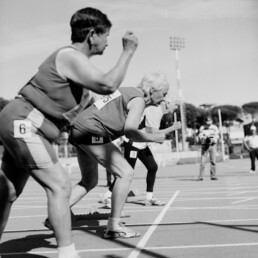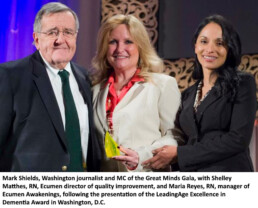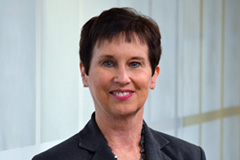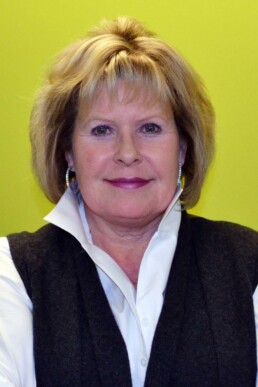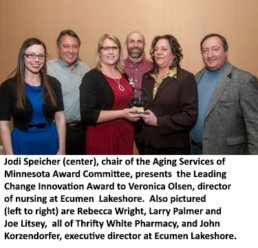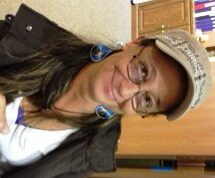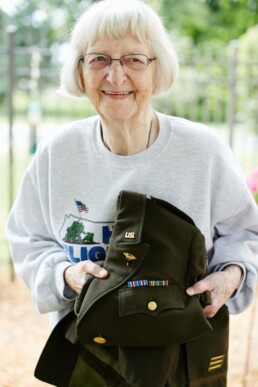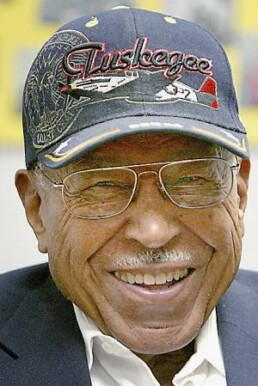Dig These Senior Athlete Photos By Angela Jimenez
Photographer Angela Jimenez takes Inspiring photos of senior athletes from around the world.
Ordean Foundation Awards $11,000 to Ecumen Lakeshore’s Home Delivered Meals Program
The Ordean Foundation has awarded $11,000 to Ecumen Lakeshore to support its Home Delivered Meals program for homebound seniors in Duluth, Minn.
“We’re very grateful for the Ordean Foundation’s support,” said Duane Battisti, the meals program coordinator.
Battisti said the Home Delivered Meals program runs at a deficit since many participants cannot afford to pay for the meals, and foundation support helps keep the program viable. He said home delivered meals at little or no cost help many seniors remain self-sufficient and live in their own homes independently.
The program provides more than 15,000 meals annually to low-income seniors who are homebound, handicapped or in rehabilitation, Battisti said. The meals are prepared by the professional kitchen staff at Ecumen Lakeshore, then packed and delivered by almost 100 volunteers.
The Ordean Foundation has been helping Duluth residents and institutions through charitable giving for more than 80 years. It began in 1933 through the estate of pioneer merchant and banker Albert Ordean, helping families with food, clothing and shelter during the Great Depression. The foundation currently supports a wide range of programs in areas such as social and human service programs, children and you, community development, higher education, health and medical research and arts and culture.
At Ecumen Lakeshore Music Accompanies Memory Care to Keep the Past Alive for Those With Dementia
The ability of music to unlock memories for those with Alzheimer’s and other forms of dementia is well documented. The memory care program at Ecumen Lakeshore in Duluth uses music therapy to reconnect residents to their past and to lift their spirits. Reporter Jennifer Austin of the Northland’s Newscenter (KBJR) in Duluth visited a therapy session and offers the video report posted here showing how Ecumen’s Rita Walker and Melanie Smith use music to help residents remember.
Ecumen Trustee Debbie Cervenka Forges New Paths Supporting a Mission That Is Personal
The future looked bright for Ecumen Trustee Debbie Cervenka and her husband Bob. They had just sold the highly successful company they built together and were making big plans for the next phase of their lives. What happened next totally shattered their dreams— but gave Debbie the resolve to turn their life-changing event into a mission to help others.
Bob was walking up some stone steps one day when the stone broke and he slipped and fell backward about 15 feet, landing on his head. He suffered a massive head injury— so serious that doctors told her he would have to be in a nursing home for the rest of his life. Debbie said no. She would find another way.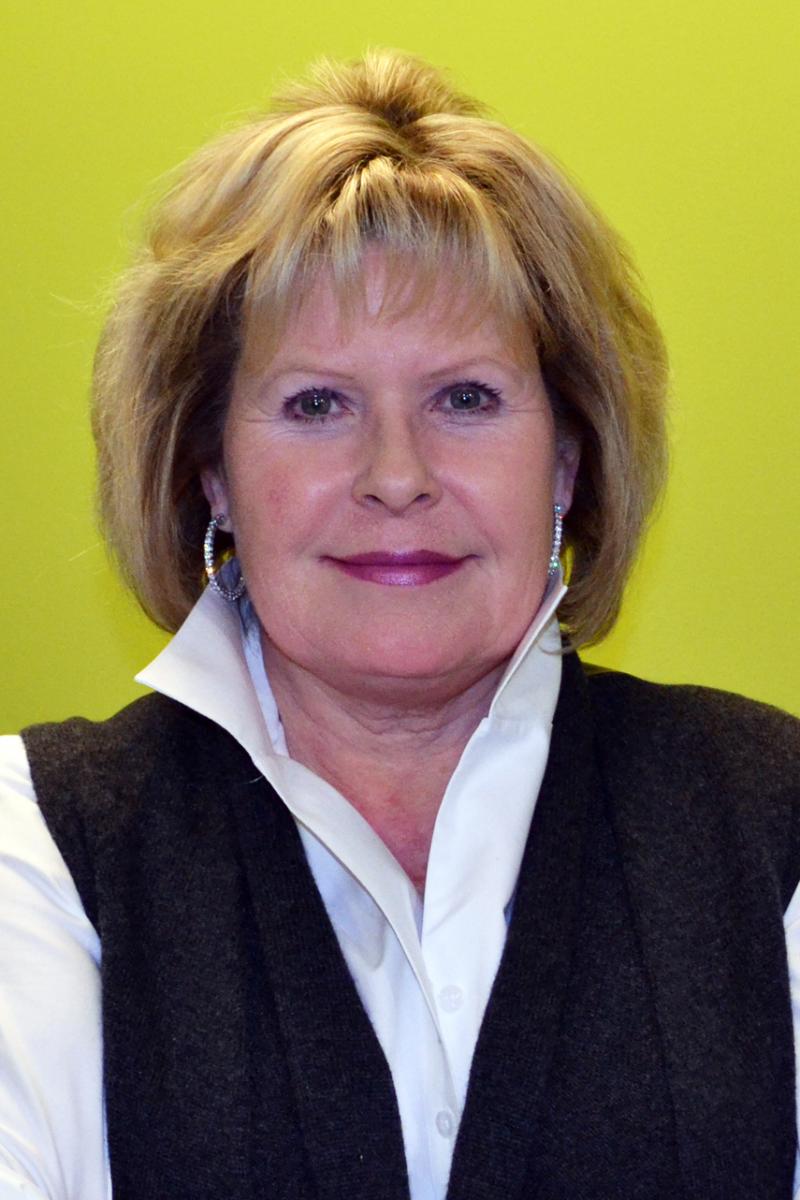
“The doctors said I was overreaching— that I didn’t know what I was doing,” Debbie recalls. “They didn’t know me. It put me over the edge.” She set out to find a better way and knocked on Ecumen’s door as a potential customer.
She knew exactly what she wanted for Bob: “dignity, respect and a real home.” And as a board member, she knew Ecumen’s mission statement: “We create home for older adults wherever they choose to live.”
So if Bob Cervenka chooses to live somewhere other than a care center— even though that might present challenges— can that happen at an Ecumen community? Debbie was asking if it could happen— not demanding.
Staff at Ecumen Lakeshore in Duluth took an in-depth look at Bob’s situation and made a proposal. “They thought outside the box,” Debbie says.
Bob lives in an independent living apartment but has a regular care team, specifically selected based on his unique needs. “What Ecumen did,” Debbie says, “is look at Bob as an individual, not as a number on a bed.” There is a care team, picked based on compatibility with Bob, that meets regularly to adjust his care plan. Debbie is also part of the team.
“Ecumen is all about listening to and knowing the person as an individual,” she says. “Too often in these situations, people completely lose their voice in their own care.”
Bob’s situation is somewhat unusual. The 2011 head injury was not his first. Rather, it was one of many. Bob played high school and college football and had multiple concussions. Then later, he went through the windshield of a car in a traffic accident. The trauma added up over the years.
Debbie is sure that Bob has chronic traumatic encephalopathy (CTE) — the disorder of many athletes who suffer sustained head trauma. Technically, the prevailing medical view is that CTE can only be diagnosed post-mortem. But a recent groundswell of evidence is pushing back on that point of view, and doctors have told her they believe Bob has CTE, which causes memory and behavioral issues.
And Debbie— “like a dog with a bone”— is now doing her part to not only change current thinking about CTE but also how care-giving institutions deal with people who have it. Her experience with Ecumen leads her to believe there is a new model of care that can and should be developed for former athletes like Bob who are living with post-sports dementia.
When she was looking for the right care for Bob, one of the issues was that he is a relatively big man and very strong. She noticed that most care centers are designed for frail, elderly people. If adjustments— like bed size, room size and types of therapy— had to be made for Bob, what about all these other ex-athletes who need care now or will in the future? “What does a facility look like for this particular type of dementia? What is the programming?” she asks.
Debbie is encouraging Ecumen to explore those questions, and she is also planning a proposal to the NFL, which has, as part of a pending $765 million lawsuit settlement with players, agreed to research the connection between football and brain injuries and the accommodations that need to be made to take care of former athletes.
Debbie is adept at forging new paths with her husband. Bob, a mechanical engineer born and raised in Phillips, Wisc., was the co-founder of Phillips Plastics Corp., one of the largest private custom injection molding companies in the nation. Debbie worked at the company as executive vice president and was on the board. The company took big risks, innovated and made sound strategic decisions that kept it prosperous when many other plastics manufacturers were falling to global competition. Well before Bob’s accident, he and Debbie had decided the rest of their lives would be devoted to philanthropy. “Many people touched us and helped us achieve what we did,” Debbie says. “Our goal now is to give back. It is a critical part of our lives.”
Both Bob and Debbie had grown up understanding the value of hard work. Bob’s father died when he was 10. Debbie’s father was a school teacher. It wasn’t until much later in their lives that they had the means to start thinking about all the ways they could make a difference supporting the causes they believe in.
At the Cervenka house at Christmas time, the family celebration focused on helping teach the kids the importance of giving back. Everyone was expected to advocate for an organization and detail the reasons why it should be supported. “We wanted to touch more lives and in doing so, encourage others to want to do the same,” Debbie says.
One of the first places they gave back was to the town and people of Phillips, Wisc. The town had given financial and other support to Bob’s new enterprise when he and his partner had only minimal startup capital. As the company became successful, they created the AnnMarie foundation that provides annual financial support for high school scholarships, volunteer fire departments, nursing homes, youth sports teams, and other local projects that need help. (Ann was Bob’s mother’s first name and Marie was the company co-founder’s mother’s first name.)
Other priorities are education and the environment. They have been major donors to the Nature Conservancy, Northland College, the University of Wisconsin—Madison and the University of Wisconsin—Stout. And Ecumen has benefited from their philanthropy.
In fact, Debbie now leads the Ecumen Board of Trustees Philanthropy Committee. Debbie is focused on raising money for Ecumen in its non-profit role of innovating and problem-solving some of the major issues related to aging— such as improving dementia care, how to reduce hospitalizations of the elderly, improving the quality of rural health care, developing a steady workforce of caregivers and creating a fund to pay for the care of those Ecumen residents whose assets have been depleted. Her goal is to create a highly organized “culture of giving” at Ecumen that will provide on-going funding for initiatives beyond day-to-day operations.
“Debbie leads by example,” says Judy Blaseg, Ecumen’s vice president of philanthropy. “She combines compassion, vision and determination to focus on the big issues and get things done.”
The giving, Debbie says, is “joyful giving” because it helps people make the things that bring joy even better.
Ecumen Lakeshore in Duluth Wins Aging Services of Minnesota Innovation Award for Medication Management Program
Ecumen Lakeshore in Duluth, Minn., in partnership with Thrifty White Pharmacy, has received the Aging Services of Minnesota’s Leading Change Innovation Award for a medication management program that has helped reduce hospital readmissions.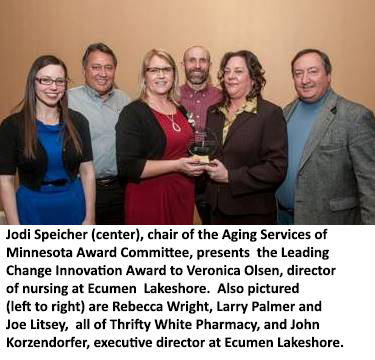
The program is designed to ensure that patients leaving short-stay rehabilitation at Ecumen Lakeshore know when and how to take their medications and what to do if they have problems.
As part of the discharge process, a nurse and an occupational therapist do an evaluation to make sure patients ready for discharge can read and understand their medication labels and can open the bottles. Then a nurse holds a meeting with the patients and their families to discuss any issues and conducts a pharmacy education session.
The pharmacy education, developed by Thrifty White and Ecumen Lakeshore, includes an interactive web-based session with a registered pharmacist. The nurse uses an iPad to connect with the pharmacist, who then explains to the patient and family how to take all the prescribed medications and answers their questions.
The patient receives an action plan for medication management before discharge and a 30-day supply of medication through Thrifty White. Then the pharmacist follows up in 72 hours for a check-in and does another follow-up in three weeks.
Just making sure that patients fully understand the basics of their medications and how to take them reduces readmissions, said John Korzendorfer, executive director of Ecumen Lakeshore. “So often,” he explained, “people are so glad to be going home that they have trouble focusing on anything else. The detailed discharge procedure, the iPad pharmacy education and the pharmacist’s follow-up all work to minimize mistakes or lapses in memory.”
The innovation award was presented at the 2014 Aging Services of Minnesota Institute on February 5, 2014, in Minneapolis. Korzendorfer said Ecumen is looking at ways to adapt the Lakeshore program to short-stay sites throughout the company.
Ecumen Lakeshore’s Annette Walkowiak “Just Won’t Stop” for the Snow
The snow is piling up in Duluth. There’s a foot on the ground and another foot or more on the way. Lots of people are hunkering down, but Ecumen Lakeshore employee Annette Walkowiak is stepping up— big time.
An assisted living community needs staff regardless of the weather, and Annette is out on the road in her 4-wheel drive making sure other employees get to work. Today she’s volunteered to go to the far end of Duluth to pick up an employee who otherwise would not have made it to work.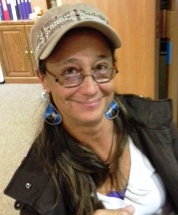
Last month Annette got up at 3 a.m. to pick up another employee and give her a ride to work. That took about two hours before Annette could get back home and go to bed on her day off. That’s just the kind of person she is.
Rita Walker, the director of assisted living and memory care at Ecumen Lakeshore, can’t say enough good things about Annette. “She just won’t stop,” Rita says. “She’s a fireball. She’s just so willing to help all the time, and she’s such a team player.”
Annette is a personal care attendant who, in her spare time, makes Christmas presents and ornaments for the residents of her memory care unit. That’s in her spare time when she is not taking care of her own mother and her grandson.
“She just so special,” Rita says.
John Korzendorfer, the executive director at Ecumen Lakeshore, echoes Rita’s praise for Annette, and all the Ecumen Lakeshore employees who go above-and-beyond when the notorious Duluth weather takes its toll. “They just pull and pull and pull,” John says. “Bad weather brings out the good in people.”
Today we honor Annette Walkowiak, who has made it a better day for others.
The Story of JFK and PT 109 You Haven't Heard
Very few men can say they have run a race with a U.S. President—and won. Father Vincent Healy Arimond, a resident at Ecumen Lakeshore in Duluth, has that fond memory.
The President was John F. Kennedy Jr. The race was a PT boat scramble in the South Pacific during World War II.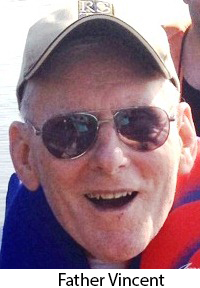
JKF was then a young Navy lieutenant, commanding the now famous PT 109, which as PT boats go, was something of a heap. Fr. Vincent, before he became a priest, was the quartermaster on the much more seaworthy PT 60. The two boats were paired for night patrol near the Russell Islands.
In his memoirs, Father Vincent, recalled that night this way:
“After the night’s patrol duties, Jack (Kennedy) challenged our skipper to a race back to our Russell Islands base. We readily agreed, knowing he couldn’t possibly win. The flatter hull of our 70-foot PT 60 boat was lighter and faster than the PT 109, an 80-foot boat. An incentive was that our required refueling was first-come-first-served, in order of arrival, after which the crew would be free to take a swim in the bay to cool off.
“As we expected, we won the race easily. Jack did not like being beaten in a race. When we got into the harbor, he gunned the engine and plunged past us, a forbidden harbor practice in the Navy. As he headed for the docks he asked his motor-mac to put the motors in reverse. The intensity of the speed killed the motors, and he headed straight towards the dock with no way to check his speed. We watched as the boat plowed into the dock with a crash. The dock broke into pieces, the PT boat stopping when it hit the pilings that supported the dock. We heard Jack was in real trouble. The authorities assigned Jack to duty on the beach for a spell. This couldn’t last long, however, as we were all needed for the patrols.”
And, of course, the rest of the story has been widely publicized and made into a movie. Sometime later, operating from a different base, Lt. Kennedy went on patrol in PT 109 and the boat was cut in half by a Japanese destroyer. In a narrow escape from the crash, JFK led his 10 surviving men in an exhausting and heroic swim to a nearby island.
Father Vincent, who recalls frequently riding to Mass with Lt. Kennedy, is now 92 and living at Ecumen Lakeshore, where he has written his memoirs that recall the Kennedy story. After the war, Father Vincent returned to the States to become a priest. He did pastoral service in Duluth, Brainerd, Sandstone, Proctor and Morgan Park.
After 25 years in the priesthood, Father Vincent changed course. “Ultimately, I realized that I had promised God that I would serve in the Missions,” he wrote. He spent the rest of his career in Peru, Bolivia and Ecuador before returning to Duluth, where he retired.
Lt. Kennedy returned from his ordeal to become a Congressman and the 35th President of the United States. He was assassinated 50 years ago today.
Star Tribune Highlights Ecumen as "Nonprofit To Know"
Ecumen is highlighted as one of the “Nonprofits To Know” in the November 6, 2013, Star Tribune “Giving Back” special section.
The Star Tribune calls attention to “Nonprofits To Know,” a video series produced by Minnesota Philanthropy Partners featuring nonprofits doing important work.
The Ecumen video focuses on the Little Treasures Childcare and Family Center in Duluth, which serves at-risk children. Ecumen teamed up with Little Treasures in 2011 to create an inter-generational program to foster the healthy development of children and increase the quality of life of older adults. At the time, Little Treasures needed a permanent home, and Ecumen had some unfinished extra space at Ecumen Lakeshore. The space was converted into the daycare center with donations from local civic organizations, individuals and foundations. Ecumen Lakeshore residents regularly volunteer there as “grandfriends” to babies and toddlers.
Ecumen CEO Kathryn Roberts is interviewed in the video, which can see here.
Joe Gomer, Minnesota's Last Tuskegee Airman and Ecumen Lakeshore Resident, Dies at 93
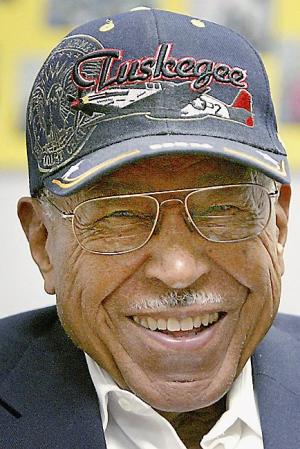 Our country has lost a hero, Congressional Gold Medal recipient and one of a small group of remaining Tuskegee Airmen. Joe Gomer passed away at Ecumen Lakeshore in Duluth, Minn., on Thursday, October 10. Our thoughts and condolences go out to his family, friends and all those he inspired. We are honored to have known and cared for Joe Gomer.
Our country has lost a hero, Congressional Gold Medal recipient and one of a small group of remaining Tuskegee Airmen. Joe Gomer passed away at Ecumen Lakeshore in Duluth, Minn., on Thursday, October 10. Our thoughts and condolences go out to his family, friends and all those he inspired. We are honored to have known and cared for Joe Gomer.
Learn more about Joe's life and accomplishments in today's Pioneer Press/AP story, "Minnesota's last Tuskegee Airman dies at 93."
Photo by AP Photo/Duluth News Tribune, Steve Kuchera

